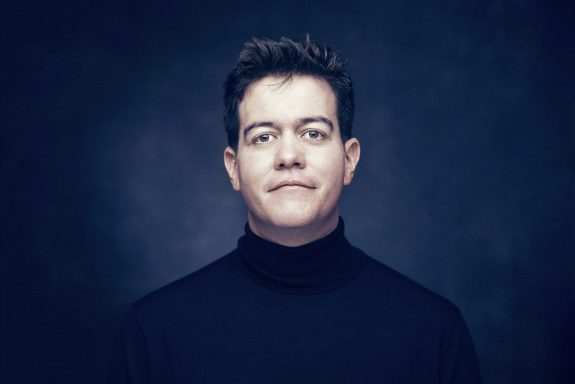
 United Kingdom Edinburgh International Festival 2024 [15] – Rossini’s Petite Messe solennelle: Catriona Hewitson, Holly Teague, Holly Brown (sopranos), Georgia Mae Ellis, Kelsey Lauritano, Hannah Bennett (altos), Liam McNally, Euan McDonald, Ferdinand Keller (tenors), Smelo Mahlangu, Jonathan Eyers, George Robarts (basses), James Baillieu and Mark Austin (pianos), Sofia Ros González (accordion). Queen’s Hall, Edinburgh, 24.8.2024. (SRT)
United Kingdom Edinburgh International Festival 2024 [15] – Rossini’s Petite Messe solennelle: Catriona Hewitson, Holly Teague, Holly Brown (sopranos), Georgia Mae Ellis, Kelsey Lauritano, Hannah Bennett (altos), Liam McNally, Euan McDonald, Ferdinand Keller (tenors), Smelo Mahlangu, Jonathan Eyers, George Robarts (basses), James Baillieu and Mark Austin (pianos), Sofia Ros González (accordion). Queen’s Hall, Edinburgh, 24.8.2024. (SRT)

This was, in many ways, a very fine performance of Rossini’s Petite Messe solenelle, though it felt in some ways like a missed opportunity. The official title of the concert was Exploring Rossini, but not much exploring was done; we just got a straight-through performance of the mass with no interventions or explanations. We were also told that the singers were ‘12 gifted students (selected by an open audition process)’, but we didn’t learn anything about them, who they were, where they were from, what stage they were at in their music careers.
It was also, therefore, a little strange that so much of the pre-concert publicity focused on pianist James Baillieu. Sure, he did the lion’s share of the piano playing and, probably, the training, but with his back to the audience and his focus on the keyboard for the entire performance, he seemed to be the least important person on the stage. The other pianist, Mark Austin, seemed to do any directing that needed to be done, in terms of cues and emphases, and I enjoyed watching the way he would quietly sing along to the choral line as he was punching out the accompaniment to the big fugues.
The twelve singers did a great job while all singing together. The big moments had a terrific ring to them, and having only twelve performers meant it was pretty easy to maintain clarity in the fugal climaxes. The solos were mostly well taken, too, though it is a pity that they remained anonymous. Each of the twelve singers got a moment in either a solo or an ensemble, but we weren’t told who was singing what. So I may never know the identity of the bright, genial soprano who sang O salutaris hostia, or the rich, dramatic alto in the Gratias and Credo. Who was the pingy tenor soloist in the Gratias, or the bass with the rich middle register but slightly squashed low notes in the Quoniam? Maybe I’ll never discover.
So even though the performances were good, that anonymity and the way the pianists disappeared into their roles meant that much of this concert felt like it was taking place at arm’s length. The one incontrovertibly wonderful thing was the playing of Sofia Ros González, whose wheezy accordion stood in for the harmonium and sounded fantastic.
This ended the Edinburgh International Festival’s Queen’s Hall series on a bit of a ‘meh’, therefore, but it has nevertheless been a strong year for the EIF’s chamber music series, with a good mix of established stars and up-and-comers who got their moment in the spotlight. I am still not 100% convinced by replacing the programme booklets with freesheets. They work well for a one-work concert like this one, or in the concerts (all Seen and Heard reviews here) that have a self-explanatory line (like Jakub Józef Orliński’s dramatic presentation on the opening weekend), or where the artists talk us through what they are doing (such as Sheku Kanneh-Mason or Pierre-Laurent Aimard). They were much less successful for those artists who didn’t say anything from the stage: I’ll remain forever unenlightened about the thought processes behind programmes from Midori or Raphaël Feuillâtre (all Seen and Heard reviews here). One unalloyed good that has come out of this season, however, is the installation of the supertitle screen. It often pointed out to the audience what work or movement was being played at the time, which would be helpful for newcomers; and it was used to project the English translation for song recitals. That made a big difference to audience engagement, and I imagine it must have been a big boost for the artists, too, who must surely prefer to see their audience’s faces rather than watch them looking up translations in booklets. Let’s have that back next time, please, but maybe also with some more information about the music we are hearing.
Simon Thompson
